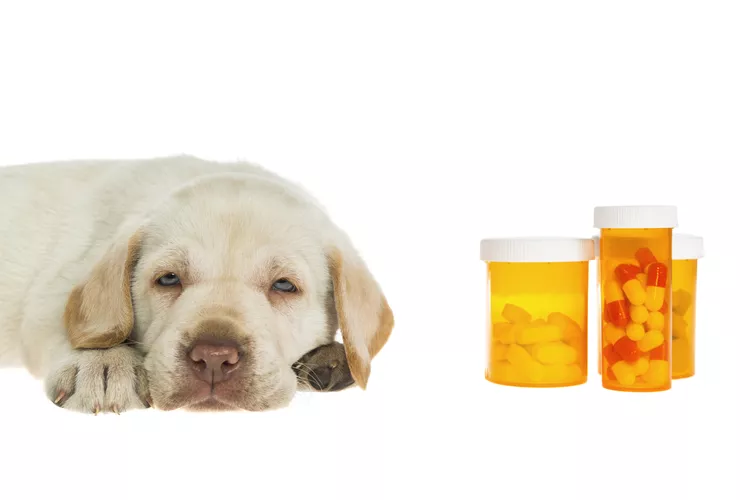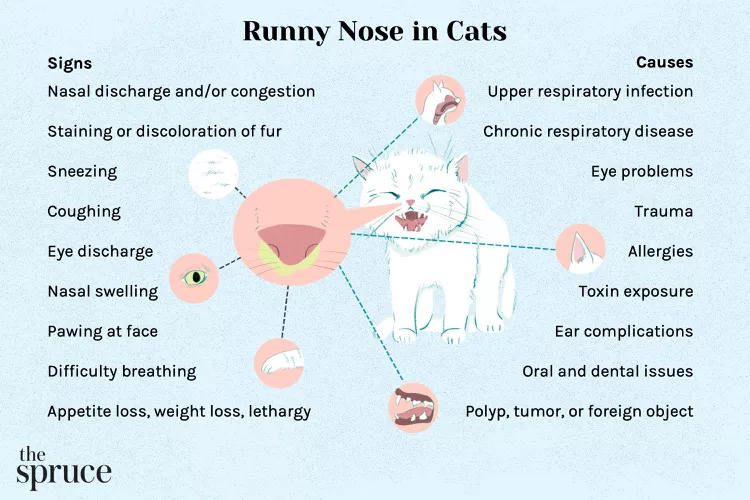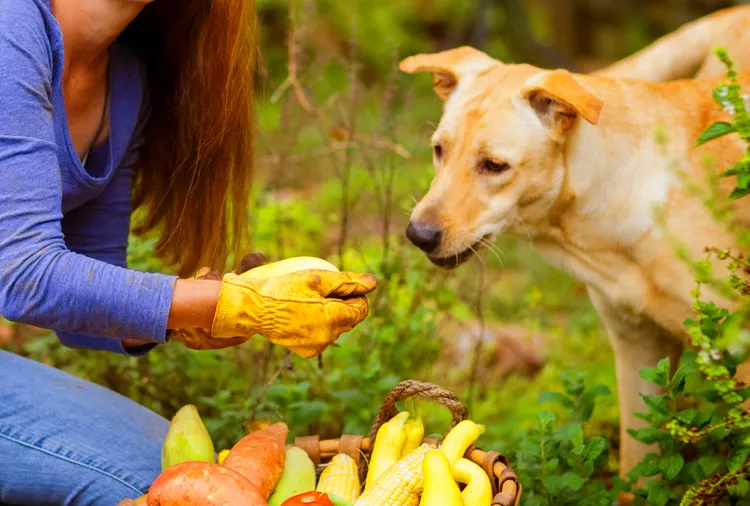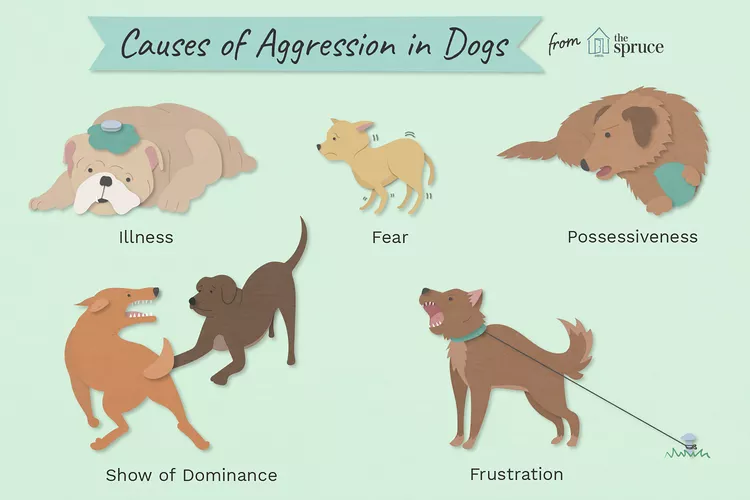
Whether your dog is getting older or they play a little too hard and tweak something, it's difficult to watch them limp along while you wait to bring them in to the vet. You may be tempted to give them something from your own medicine cabinet to help with the pain. You should be wary about giving your dog ibuprofen, though.
Ibuprofen, which is the generic drug name for products such as Advil, Nuprin, and Motrin, belongs to a class of drugs called Non-Steroidal Anti-Inflammatory Drugs, or NSAIDs. The inflammation process is complex and within it, an enzyme called cyclooxygenase, or COX, produces prostaglandins, which may then cause inflammation. NSAIDs work to inhibit COX, thereby diminishing the production of the prostaglandins that cause inflammation. The problem arises in the fact there are two different COX enzymes, COX-1 and COX-2, and ibuprofen blocks both indiscriminately. While COX-2 produces the inflammatory prostaglandins, COX-1 works to maintain normal gastric lining, blood flow to the kidneys, and even platelet clumping.
So ibuprofen not only works to decrease inflammation by blocking COX-2, it can also reduce the protective mucous that lines the stomach, blood flow to the kidneys, and even can increase clotting time.
While ibuprofen is relatively safe for you to take, there is an incredibly narrow margin of safety in dogs. This means the amount a dog would need to be therapeutic is not that far from the amount that would be toxic. In fact, the toxic dose of ibuprofen is only about 1.5 times the effective dose if used chronically. There are veterinary specific NSAIDs that have a much wider therapeutic range and are, thus, much safer for your dog. This includes medications such as Carprofen (Rimadyl, Novox), Meloxicam (Metacam), Deracoxib (Deramaxx), and Grapiprant (Galliprant).
Even if you have other NSAIDs at home besides ibuprofen, it's still a good idea to wait to be seen by the vet before giving your dog anything. Switching from one NSAID to another requires something called a washout period. If you give your dog an NSAID from home to get them through to their appointment, your vet won't be able to start them on a veterinary NSAID for a few days. Washout periods can vary, but generally your vet will want to wait to start a new NSAID until 5-7 days after their last dose of medication at home. This period may be longer if your dog is having symptoms such as vomiting or diarrhea.
Dogs that ingest ibuprofen can break with vomiting (with or without blood in it), diarrhea, dark and tarry stools (called melena, this can be indicative of bleeding in your dog's gastrointestinal tract), lethargy, a decreased appetite, abdominal pain, pale or even yellow gums, an increase or a decrease in both drinking and urination, tremors, seizures, coma, and even death. Symptoms can be seen anywhere from two to six hours after ingestion. More severe symptoms may not appear until a few days after ingestion.
In an acute ingestion, the toxic dose of ibuprofen is considered to be 11 mg per pound. As mentioned earlier, it can be as low as 3 – 4 mg per pound if given chronically.
The first level of toxicity is considered to be gastrointestinal. This is where the inhibition of the mucosal lining of your dog's stomach comes into play. The mucus within your dog's stomach acts to protect the lining from the incredibly acidic environment of the stomach contents. With less mucus to protect it, the lining can develop ulcerations that can start to bleed. This can cause both vomiting of blood as well as melena. If allowed to progress unchecked, an ulcer can even completely rupture the stomach lining, which is a life-threatening emergency in and of itself.
The next level of ibuprofen toxicity is related to your dog's kidney function and can occur at slightly higher dosages than the first level. Remember that some prostaglandins work to promote blood flow to the kidneys. As this blood flow decreases, toxins that would normally be filtered out by the kidneys builds up. This can damage the kidneys and this damage can be temporary or permanent, depending on how quickly medical intervention is initiated and how healthy the kidneys were before they were damaged.
The final level of ibuprofen toxicity is related to your dog's nervous system. At very high doses, ibuprofen can cause tremors and seizures in dogs. It can even put your dog into a coma!
If you realize your dog has gotten into your stash of ibuprofen, you should seek veterinary help as soon as possible. Not only can your vet induce vomiting if it's been only and hour or so since your dog got into the medication, but your dog's prognosis is much better if medical intervention is sought earlier rather than later. Don't wait for your dog to become symptomatic. Avoid giving your dog anything at home, such as Pepto-Bismol or Kaopectate; some of the formulations may contain salicylates, which can interact with the ibuprofen and cause further damage.
Treatment will be based on how much ibuprofen your dog got into. Some cases may require hospitalization for intravenous fluids to support blood flow to the stomach and kidneys, medications to protect your dog's stomach, and frequent kidney function blood tests to ensure your dog is responding to treatment. Severe cases may require muscle relaxers to prevent tremors/seizure activity and blood transfusions to replenish not only the blood lost from a dog's GI ulcers, but to also replenish clotting factors to help the ulcers stop bleeding.
When it comes to NSAIDs for dogs, there are definitely varieties that are much safer than ibuprofen. It's always best to keep your medication out of reach of your dog and to always check with your vet before giving them your own medication.

Why Two Kittens Are Better Than One
There are benefits of adopting two kittens, such as more feasible training and companionship between them.
Everything You Need to Know About Raising Your First Cat
Whether you are thinking about getting a cat or just adopted your first one, these are the things to know to make your relationship a lasting one.
How Can I Tell the Sex of a Cat?
Telling male and female cats apart can be difficult for those who don't know what they're looking for. Here are helpful tips to discover their sex.
Runny Nose in Cats: Causes and Treatment
Cats get runny noses due to upper respiratory issues, but many conditions can cause this. Learn the causes of runny noses in cats and the associated signs. Find out how vets diagnose and treat cats with runny noses.
How Long Can You Safely Leave Canned Cat Food Out?
You cannot safely leave canned cat food out all day. Twenty to 30 minutes is the max, so give smaller portions and reheat food for later feedings.
Meat Byproducts in Cat Food
Most cat experts recommend premium brands of cat food that avoid ingredients like byproducts and chicken meal. Learn what to look for on the label.
How Much Wet Food to Feed a Cat Every Day
The amount of wet food your cat needs depends on factors such as age, weight, body condition, and lifestyle. Learn how much wet food to feed your cat.
Taurine for Cats
Taurine is an essential animal protein in your cat's diet. Learn more about the various ways it supports your feline's body.
The Different Types of Pet-Friendly Workplaces
Discover the different types of pet-friendly workplaces and the benefits they offer employees. Learn how to create a pet-friendly workplace and the best practices for pet owners.
8 Halloween Safety Tips for Pets
The spooky holiday can be overstimulating and even dangerous for pets. Here's how to avoid the problems caused by toxic candy and incessant doorbells.
Why You Should Keep Cooked Bones Away From Your Dog This Holiday Season
People should be aware of the dangers of cooked bones, especially around the holidays when they might be more accessible to your pup.
Can Dogs Eat Squash? Here's What a A Vet Thinks
Dogs can safely eat squash as long as it's prepared correctly. Find out how to properly feed this versatile fruit to your dog.
16 Small Cat Breeds That Are Petite Purring Machines
Small cat breeds like the Singapura and munchkin may be smaller than an average housecat, but they leave a giant imprint on your heart.
10 Best Cats With Big Ears
Cats with big ears often look extra endearing. Check out some common big-eared cats, including the Abyssinian, Devon Rex, Siamese, Sphynx, and more.
Javanese (Colorpoint Longhair): Cat Breed Profile, Characteristics & Care
The Javanese is a semi-longhaired, color-pointed cat of Siamese type. They are related to the Siamese, Colorpoint Shorthair, and Balinese breeds.
How to Stop Aggression in Dogs
Dog aggression can be a serious behavior issue for pet owners. Learn how to stop aggression in dogs before someone gets hurt.
Should Dogs Be Allowed on Furniture?
Should you let your dog on the couch or in the bed with you? Are there any reasons we should not let dogs on the furniture? Here's what to know.
Why Do Dogs Eat Rocks?
One of the most common non-food items for dogs to eat are rocks. Here's what to know about why dogs eat them and how can you stop your dog from eating rocks.
Why Dogs Get Aggressive and How to Stop It
Why is your dog biting you aggressively? Sometimes dogs can become aggressive with little warning. Find out what causes your dog to become aggressive so you can work with the behavior.
Thai Ridgeback: Dog Breed Characteristics & Care
Learn all about the Thai Ridgeback, a rare breed from Thailand. Find out how to care for the loyal dog and where to buy or adopt one.